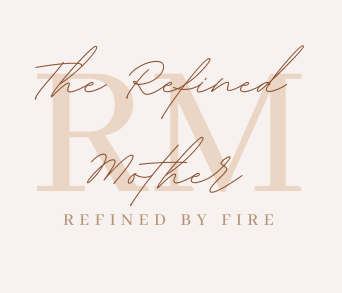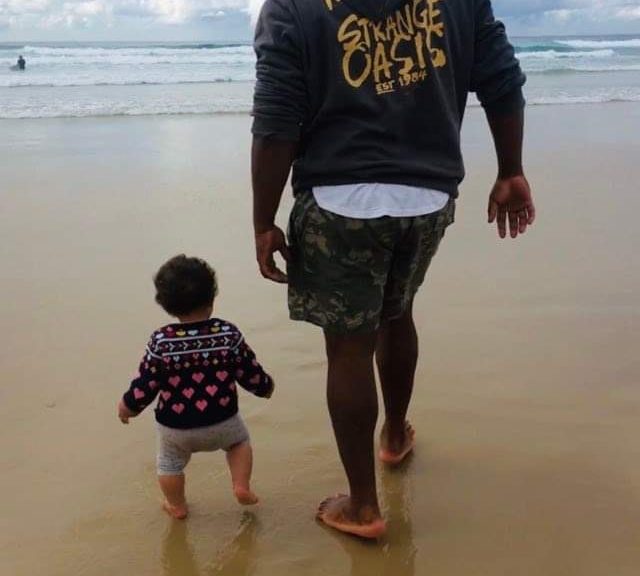Listen to the podcast on this topic here
My observations
I always knew I wanted a good marriage. I hadn’t had the greatest example, growing up. And so I became an astute observer of relationships and marriages around me. I recognised an unhealthy pattern repeated in about 5 different relationships I observed over the years, and I could never quite put my finger on it. It went something like this:
Scenario 1:
Wife: Did you get the baby’s nappies when you were in the shop?
Husband: Yes
Wife: Which ones did you get? (looking through bags) – Oh my goodness – these are the wrong size! I should have known you would have got the wrong ones. I should have gone myself.
Husband: shrugs and walks out
Scenario 2:
Wife: Do you really think you should be having that chocolate?
Husband: continues eating chocolate
Wife: You are never going to get rid of that paunch if you keep doing that
Husband: continues eating chocolate
Scenario 3:
Wife: Seriously! I asked you to pack sunscreen. This is the wrong one!
Husband: It was the only one in the cupboard
Wife: Well open your eyes next time
Husband: Walks off to have a swim
All of these scenarios, I observed in varying ways between these different couples.These interactions weren’t isolated, one off interactions in these relationships, but ongoing and uncomfortable to witness. The wife would be rude and insulting to the husband, no matter who was around. And the husband would take it. Never retaliate or say anything unkind, and retreat. The husband was nice, kind, gentle. The wife was unkind, confrontational. On closer study, the husband was avoidant and passive. The wife was frustrated and bitter. The longer the relationship continued, the more withdrawn, absent, avoidant and timid the husband became, and the more baiting, bullying and aggressive the wife became.
Over the years, I watched these relationships deteriorate, gradually. The insults increasing, and more retreating…until finally they ended altogether.
The Penny Drops
It happened that many years later, I stumbled upon an explanation for these unhealthy relationships. In my quest for a good family, I have always listened to the Focus on the Family podcasts. It didn’t matter what the topic – I listened. It could be for step parenting, bereaved parents, empty nesters, and I would faithfully listen though none pertained to me at that stage. And so I heard Jim Daly interview Paul Coughlin – the author of “No More Christian Nice Guy“
The NICE guy
Paul explains that being “nice” as a guy, is not biblical or desirable. What does it look like to be a “nice guy”?
- comes across as kind and gentle but in reality –
- passive
- desires to stay out of danger
- keep head down and get through “unscathed”
- emotionally distant
- fearful of exposure/judgement
- likes to be unknowable
- uses “niceness” as a hiding place
- disconnected
- lack of emotional availability
- cowardly
- no depth
- indifferent
- dishonest
- parent distantly
Why?
A nice guy is full of fear. They fear failure. They lack confidence in their ability and calling and lack trust in the character of God. They cover over their fear with passivity and show no anger because of their indifference. They retreat from intimacy of all kinds because they fear rejection.
The word NICE is never used in the Bible to describe either the character of God or a fruit of The Spirit…however GOOD is a fruit of the Spirit.
What is a GOOD guy?
The GOOD guy
Jesus is the epitome of a good guy. A beautiful balance of tough and tender. We see tough as he faces the pharisees (Matt 23), and tender as he deals with the women caught in adultery(John 8:1-11).
A good guy is:
- honest
- courageous
- assertive
- engaged
- protective
- interested
- takes risks
- tender
- tough
A good guy is someone who speaks the truth in love, even when it can invite criticism. They are truthful and gracious, and confident in who they are in Christ. Like Jesus they are both tender and tough. They show appropriate emotion. They are comfortable with intimacy, and being known.
They epitomise MASCULINITY – a courageous expression of LOVE.
AHA!
What I had been seeing in these failing and failed relationships was a frustrated dance between a wife who wanted a strong husband, and the husband who wanted to hide. But in trying to draw him out and elicit a response, the wife was scaring the living daylights out of him and he was beating a hasty retreat. The goading, baiting, bullying was her desperate attempt to get him to snap – show anger, retaliate – ANYTHING – that would show emotion, engagement, love, care, strength. But the more she bullied, baited, harassed and goaded…the more fearful her man became. A vicious, relentless, agonising, damaging and exceedingly sad circle.
A Pause:
“I don’t have a marriage like this,” you are saying. You are considering reading something more relevant… But hang on…
I, too, did not and do not have a marriage as extreme as the ones I have described. But as I pondered and observed, I saw elements in our marriage. In myself. In my husband. Elements that made this worth knowing about. Elements you may recognise in your own marriage that will make it worthwhile continuing to read. Because all of this is part of the fall of man. It’s part and parcel of our sin nature. And worth overcoming with the help of Jesus.
To the woman he said,
“I will make your pains in childbearing very severe;
Genesis 3:16
with painful labor you will give birth to children.
Your desire will be for your husband,
and he will rule over you.”
After the initial sin where Adam and Eve disobeyed God, they were cursed. “Your desire will be for your husband and he will rule over you.” We will constantly desire to overturn God’s order and be “one up” on our husband. If we are aware of this tendency, we can take it to The Lord and do something about it. For the good of our marriage and to live in obedience of The Lord’s plan for us.
Why the circle?
As women we innately desire to be cared for, led, protected and safe. But we do not admit this to ourselves. We are strong, capable women. We are intelligent, can make decisions, multitask. And this is true. But in our heart of hearts, our created soul – does not want to be the leader. We are in conflict with what the world around is telling us. A society where feminism is celebrated and masculinity is toxic takes its toll on our psyche. Every television show dumbs down the husband and father and we are falling for these lies of the enemy. And so we soldier on – being capable and self sufficient – until the very core of our being collapses from need to be loved, guided and supported. It is in this very scenario that these wives have become desperate and have tried in the only way they know how (or default to) to get a reaction out of their man that will show some connection or care. Unfortunately…it does the opposite and the men try to keep their heads down and avoid confrontation or scathing remarks even more. Women feel disappointed and stranded when their men don’t lead. In the “niceness” and passivity they see disinterest and lack of care and love.
Unfortunately even the sexual relationship is effected because a nice guy fears intimacy. He does not trust his wife and fears rejection. Neither party seems to recognise, let alone articulate what they are feeling. This circle leads to a relationship crisis.
Self reflection
At this point – do we recognise any small part of this pattern in ourselves as wives or in our marriage relationship?
I did. And still can from time to time.
My husband is a good guy. He is a confident, strong leader. But he has some nice guy tendencies. And I am confident that I was the main contributor to these tendencies. My potential to pout, sulk, give silent treatment, or argue, verbally attack or have an emotional outburst made him very cautious at times to be straightforward and honest with me. Us women can be scary. We have words. Lots of them. We think and speak at the exact same time or even worse – speak before we think. Our sharp tongues cut down the strongest man – especially when he’s still struggling to come up with words to defend himself. And if words aren’t our forte – our emotions can render a man incapacitated. As a result, my husband would be hesitant to disagree with my “bright idea” straight away. And I would gleefully catapult myself into my “bright idea”, and then sense growing irritation and resentment on his part because it was not something he was on board with to begin with. This would cause a lot of tension in our marriage. And though he was hesitant to speak up at first, it could often lead to him exploding, once the situation became stressful. It was frustrating for me, because I could not understand why he hadn’t been clearer with me in the first place. When I thought how I would have reacted, had he been straight up honest with me, I realised that I made complete honesty very difficult for him. If I really wanted him to help me make wise decisions, I needed to change what I was doing.
Pray and think about your marriage. Are you aware of any “nice guy”:”scary wife” tendencies? Even small ones?
How do men become “nice guys”?
Men, generally, are more insecure than we realise. And this observation comes from the mouth of strong men, like Jim Daly – Focus on the Family. They have a big role to fill and they are afraid that they are inadequate for the job. Often their childhood home can contribute. Some things may have occurred in life to knock their confidence. And very often it’s us – their wives, who unknowingly undermine and emasculate them without realising we are doing this.
So what is a good guy? What do we actually want?
We want our husband to be a wise, strong leader. We want them to be masculine and confident. We want to be able to lean and depend on them. We want them to be lead by truth and be truthful. We want them to make decisions, help us make decisions and help us to understand ourselves. We want them to be assertive and courageous – ready to defend us and our children. We want them to keep us safe and secure and we need them to say “No” when necessary.
What is my role in helping him become a GOOD GUY?
We cannot change our men. Only God can do that. But we were created to be his helper. To help him be the best version of himself. If you recognise any ways in which you have contributed to his “niceness”, confess it to The Lord, and confess it to your husband.
Work on guarding your tongue to use words which edify and do not cut down. Respect your husband. Regardless of whether or not you think he is respect worthy.
So again I say, each man must love his wife as he loves himself, and the wife must respect her husband.
Ephesians 5:33
We want to be loved. Our husbands need to be respected. It is what fuels them.
I highly recommend reading Dr Emerson Eggerichs book, “Love and Respect” https://www.amazon.com/Love-Respect-Desires-Desperately-Needs/dp/1591451876 if this is an area you could develop better. We need to be taught how to respect our husbands as it doesn’t tend to come naturally.
Put concerted effort into building your husband back up to be the man God created him to be. This will require you to become a safe space for him. Take an interest in him and what he does. Ask his advice. Encourage him to be honest (I would say something like – “I’m ok if you say no” or “I will respect your answer if this is something you aren’t ok with”) and then even if it kills you – listen and respect his answer.
Compliment him for providing for you, for being there. Tell him he makes you feel safe when he’s there. That you depend on his strength. Cut out all criticism as you encourage your husband to be assertive, take risks and live big. Watch your body language. No eye rolls, tongue clicking or groans of disbelief. I can fall into an attitude of superiority when my husband can’t find something in the fridge or pantry, for instance, or goes to the shop and cannot for the life of him find a product that I’ve asked him to get. My attitude in these instances, even when accompanied by a wink or smile can convey the message that my husband is “useless” – just because this is not his area of comfort or strength. When I really look at it like that – I see how harmful it is. And I am thankful that he does not imply the same thing when I cannot find the shifting spanner, or remember which oil-fuel combination is best for the lawnmower.
Point out every little “good guy” tendency that you see. Your words will bring fruit. You can lift him into the position of leader by your actions. We have the power to cut our husbands down, but equally to build them up. Which would you rather do?
Know that this will take time, determination and self control.
If you experience significant difficulty in this area, such as in the scenarios I described at the beginning of this post, I suggest you go for Christian counselling together.
We need their objective sanity
Our husbands can often see when we are taking on too many commitments, or loading our plates too high, or complicating life for the whole family by the different things we decide to take on and do. They often have insight into our friendships, relationship and children that are of extreme value if we pay attention. I “allow” and encourage my husband to lead me. I run things past him before committing or taking the plunge and follow his advice. Life has been saner and I have been less overwhelmed with his leadership in all areas.
A thought about raising sons
Considering that we have increased awareness of what constitutes a “good” guy. Let’s raise our sons to be good guys. Let’s not squash their warrior ethos, helicopter parent or over-mother (smother) them – but encourage them to make decisions, take risks and to believe in who God created them to be – strong young men of God.
Have I not commanded you? Be strong and courageous. Do not be afraid; do not be discouraged, for the Lord your God will be with you wherever you go.
Joshua 1:9
Extra reading:





